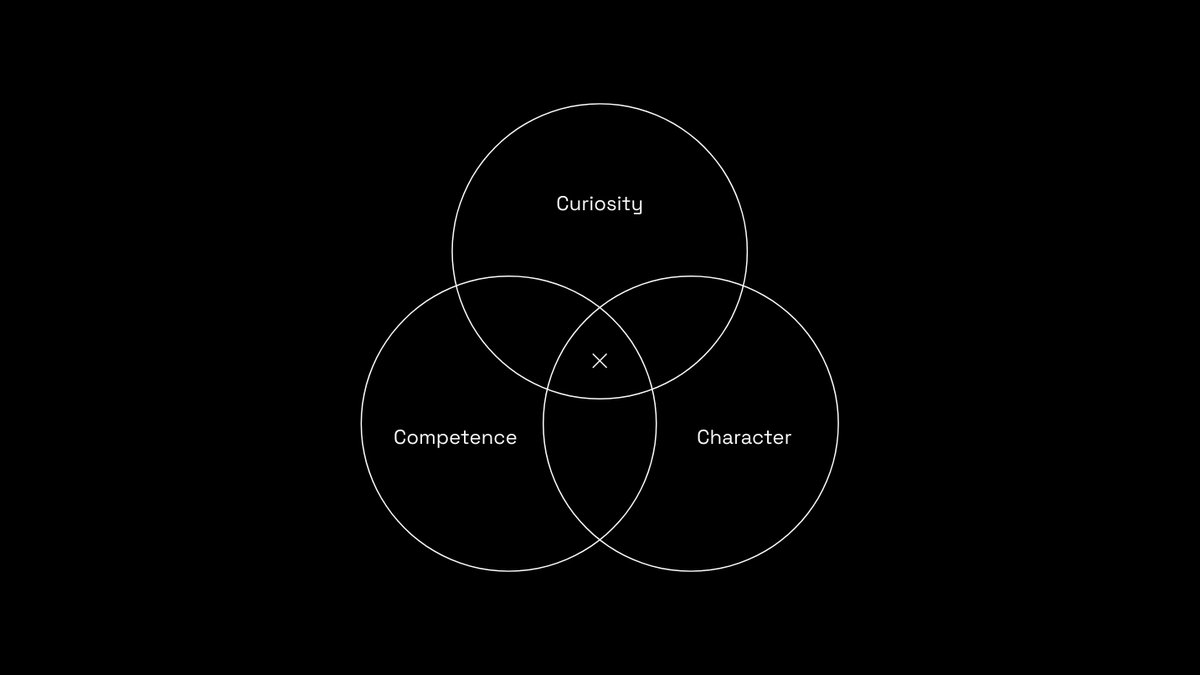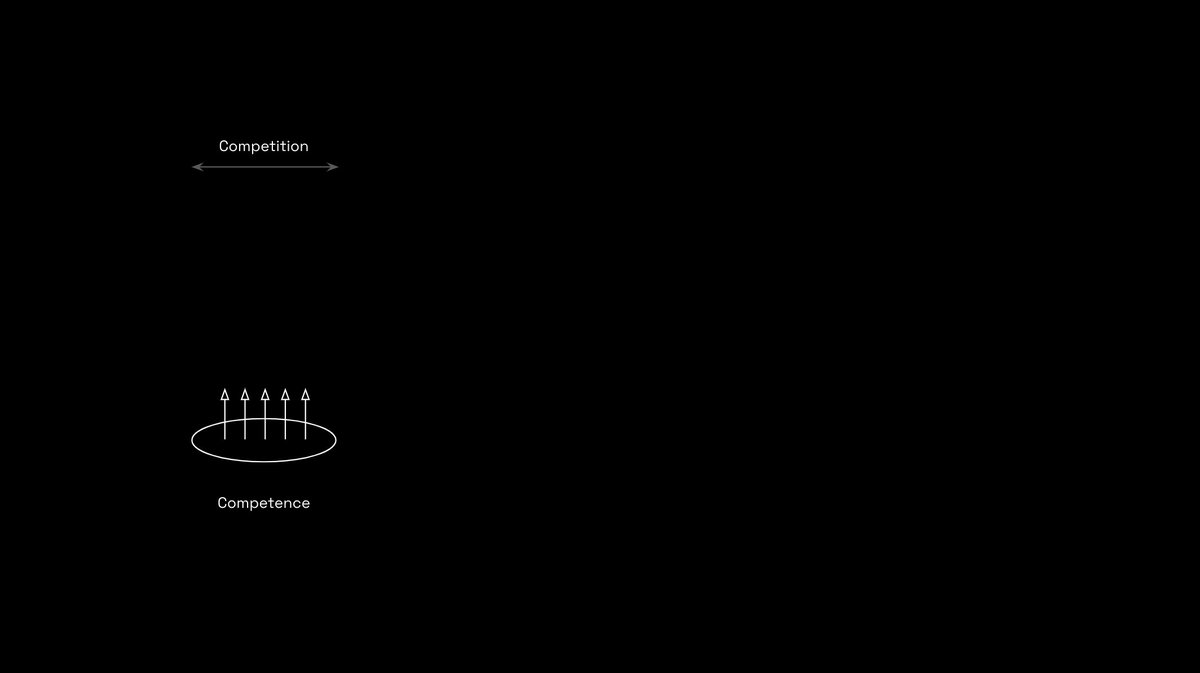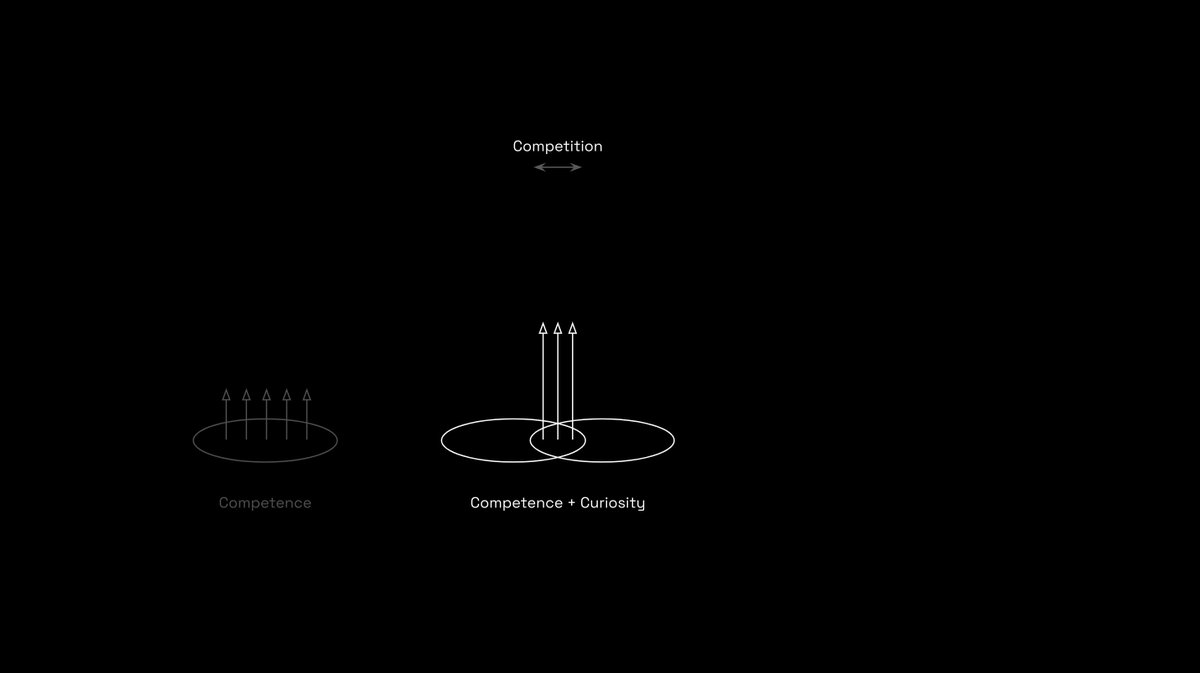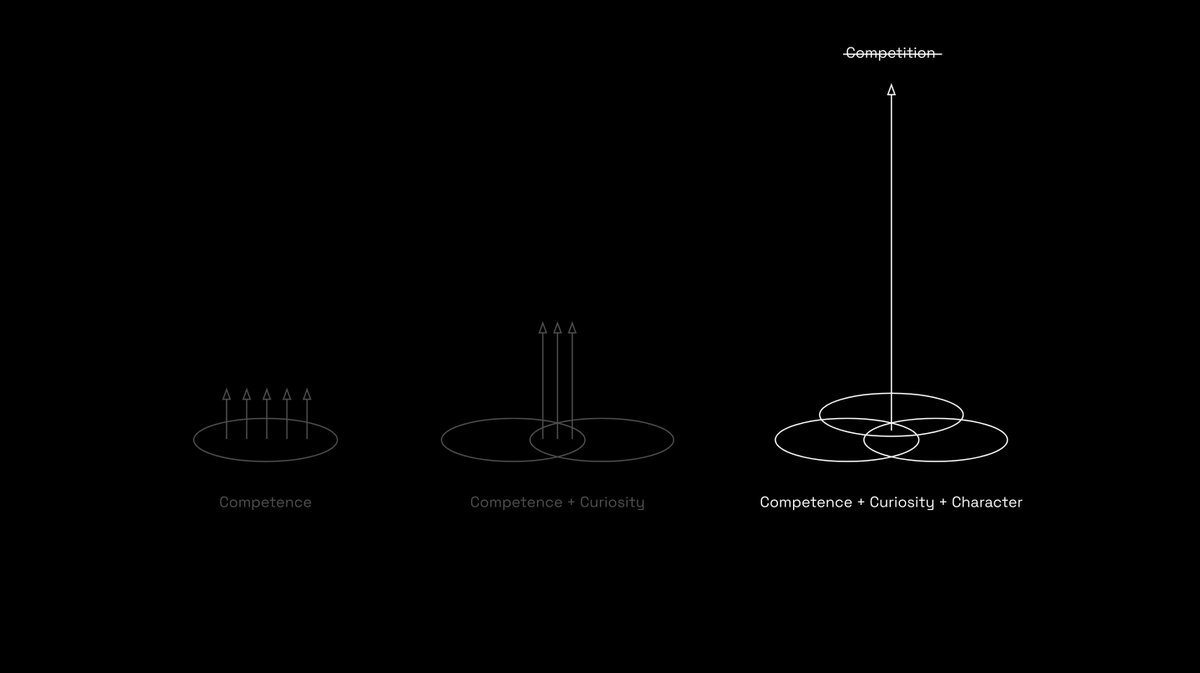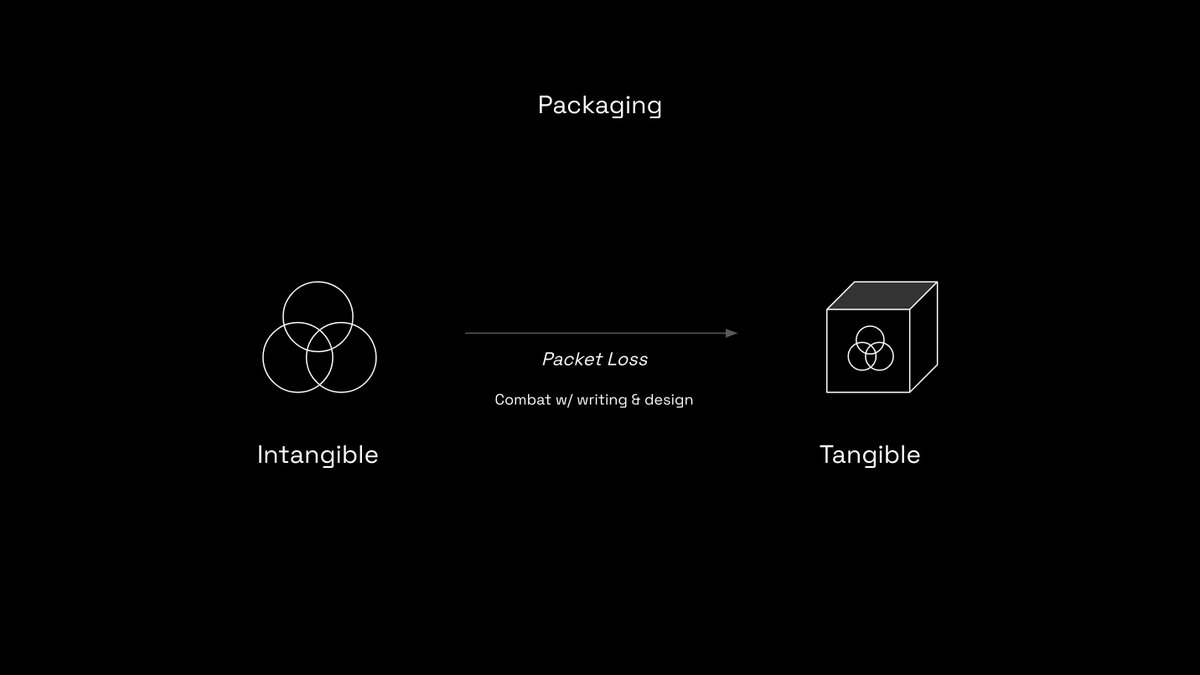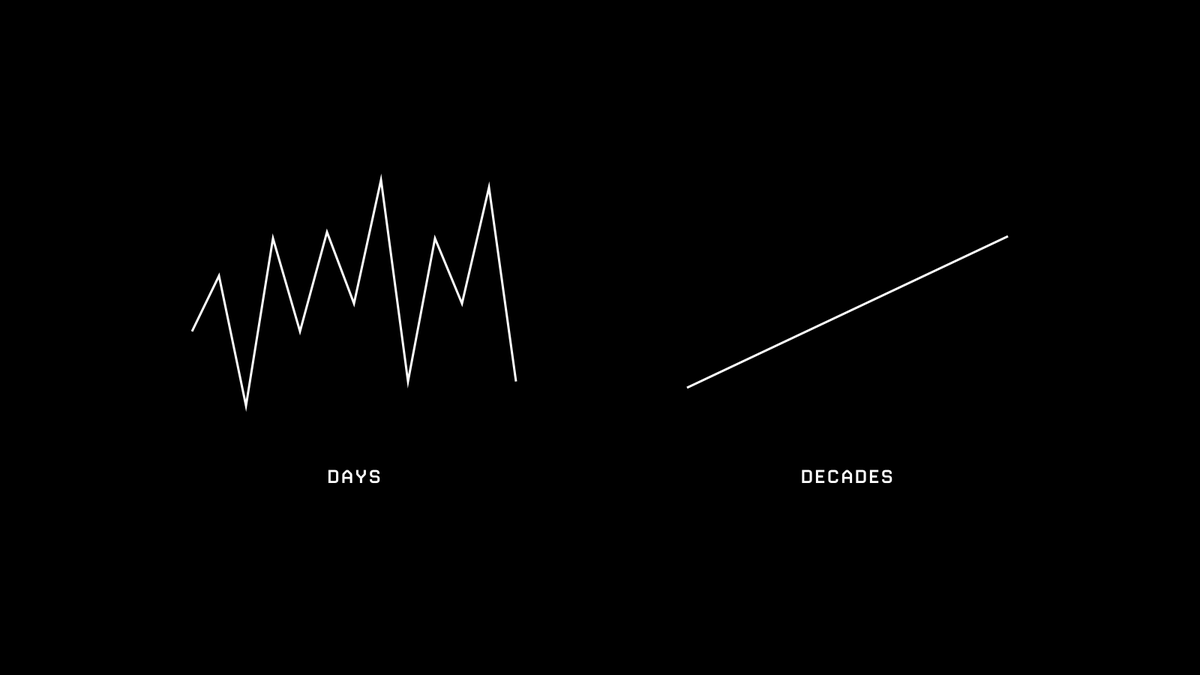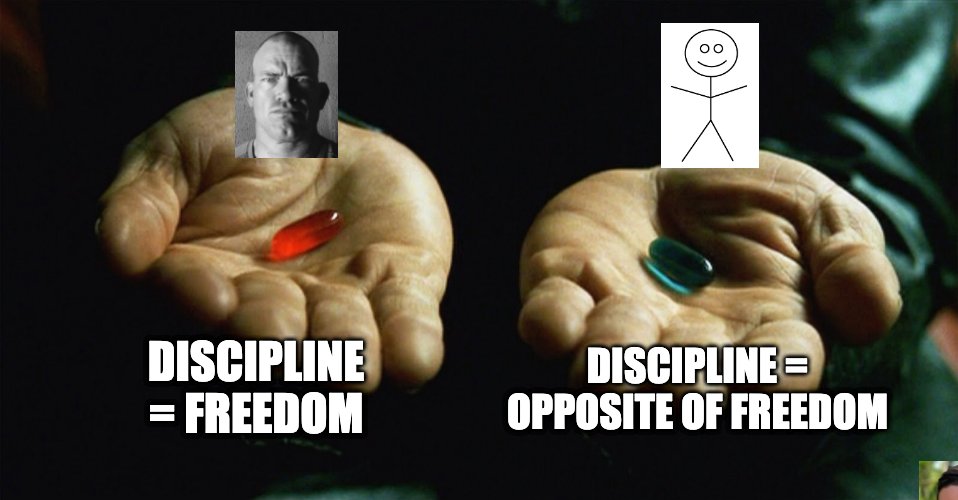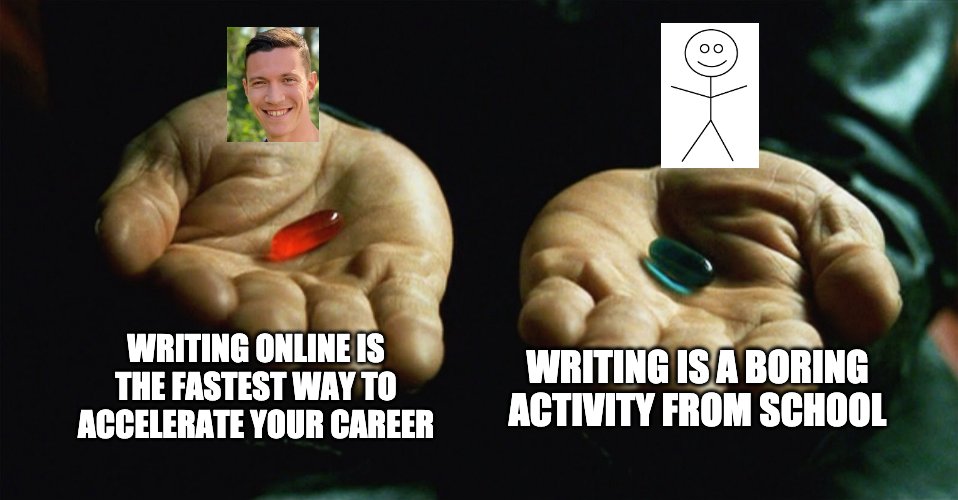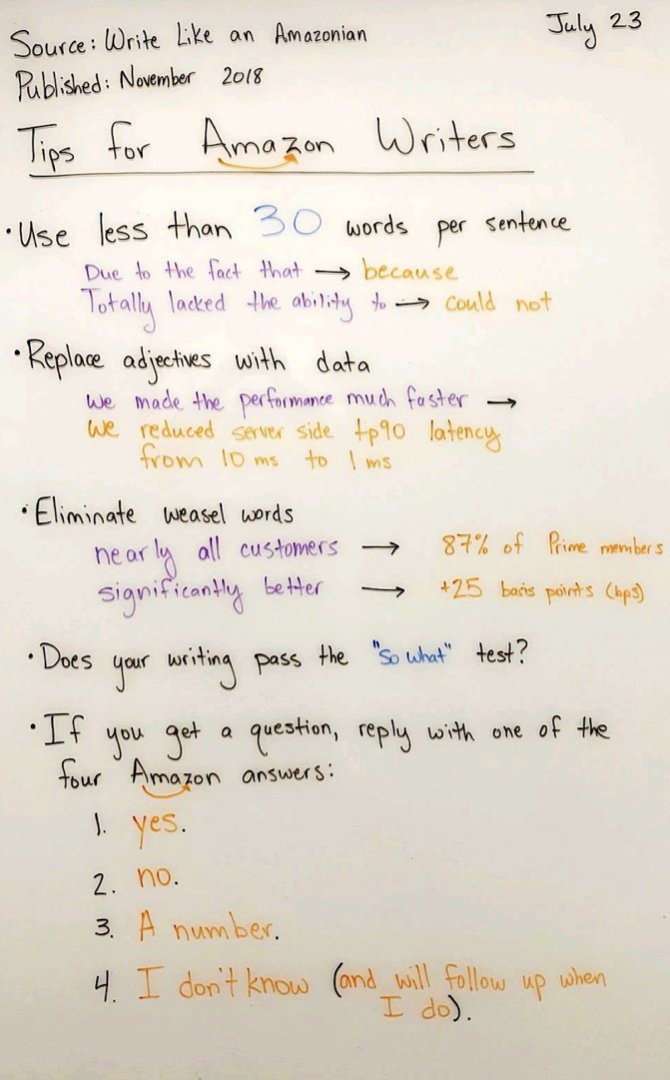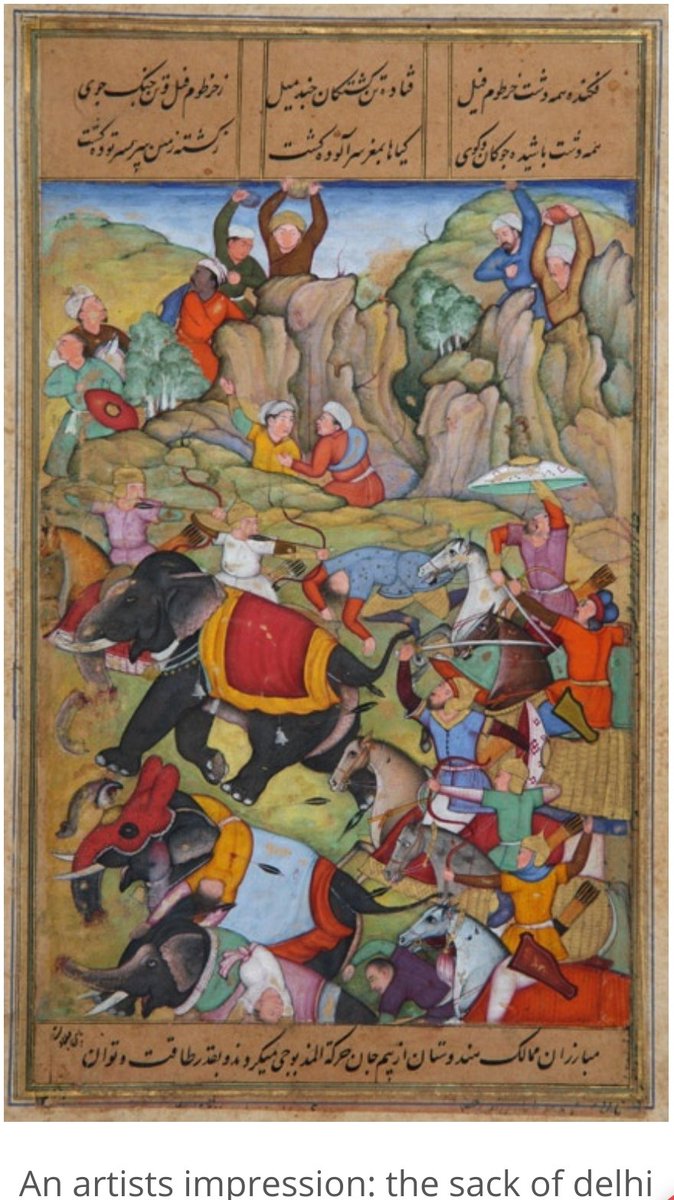The problem with that is no one is an invested as you are, and no one knows your message like you do.
Why promoting yourself/your business/your ideas feels uncomfortable:
You must repeat things that are obvious to you until they become obvious to others.
The problem with that is no one is an invested as you are, and no one knows your message like you do.
No one wants a drill they want a hole, no one wants a hole they want a shelf, no one wants a shelf they want to a place to put books to look smart, etc.
People care about the 2nd, 3rd, 4th order effects of your work.
Start by helping one person, and pay a massive amount of attention to how they feel as a result of having worked with you.
That's the feeling you're marketing.
"I feel much more confident in my ability to explain exactly what I do as a result of building out this visual narrative."
More from Jack Butcher
More from Marketing
I studied hundreds of top copywriting examples with @heyblake.
Use these 30 copywriting tips to convert readers into customers 🧵
Tip from Alex: Repeat Yourself
Reason: Your main benefit shouldn’t be expressed subtly. Repeat it three times. Make it known.
Example: Apple’s M1 Chip

Tip from Blake: Start with goals for the copy.
Reason: You need to know what you are writing, for whom, and what action it should lead to. No guesswork.
Example: My content engine at https://t.co/jYMMlbgFCw
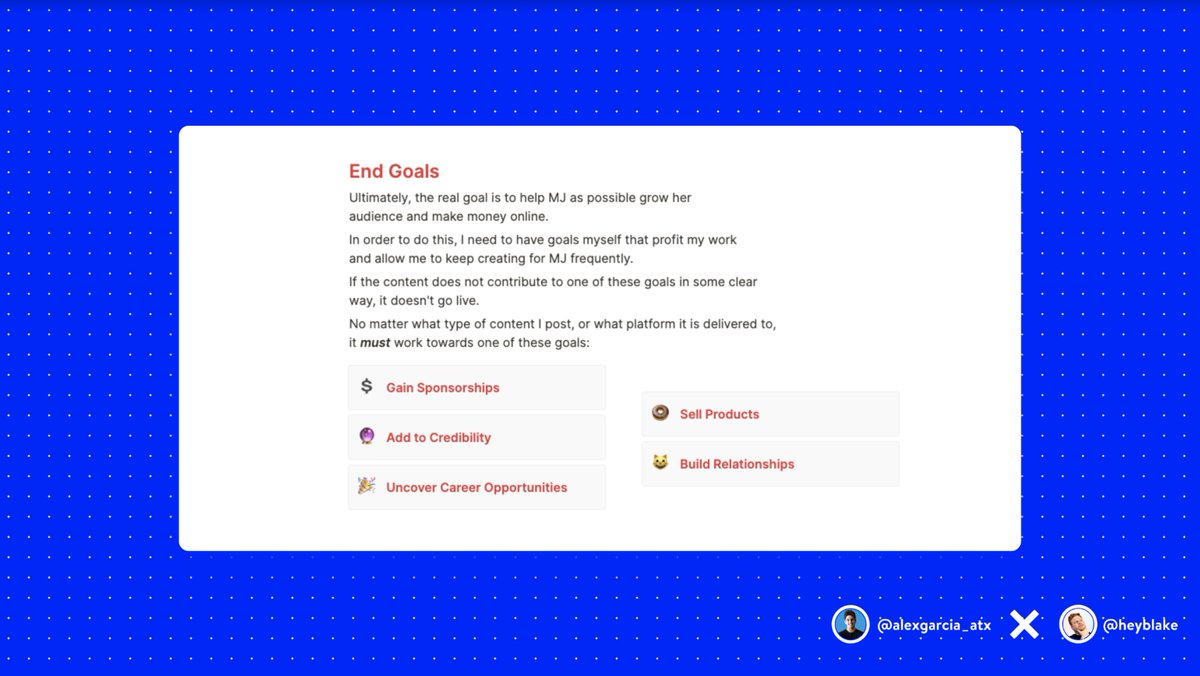
Tip from Alex: Use Open Loops
Reason: Open loops peak a reader's interest by presenting an unsolved mystery to the reader. Our brains are hardwired to find closure. Make your product the final closure. Example: Woody Justice
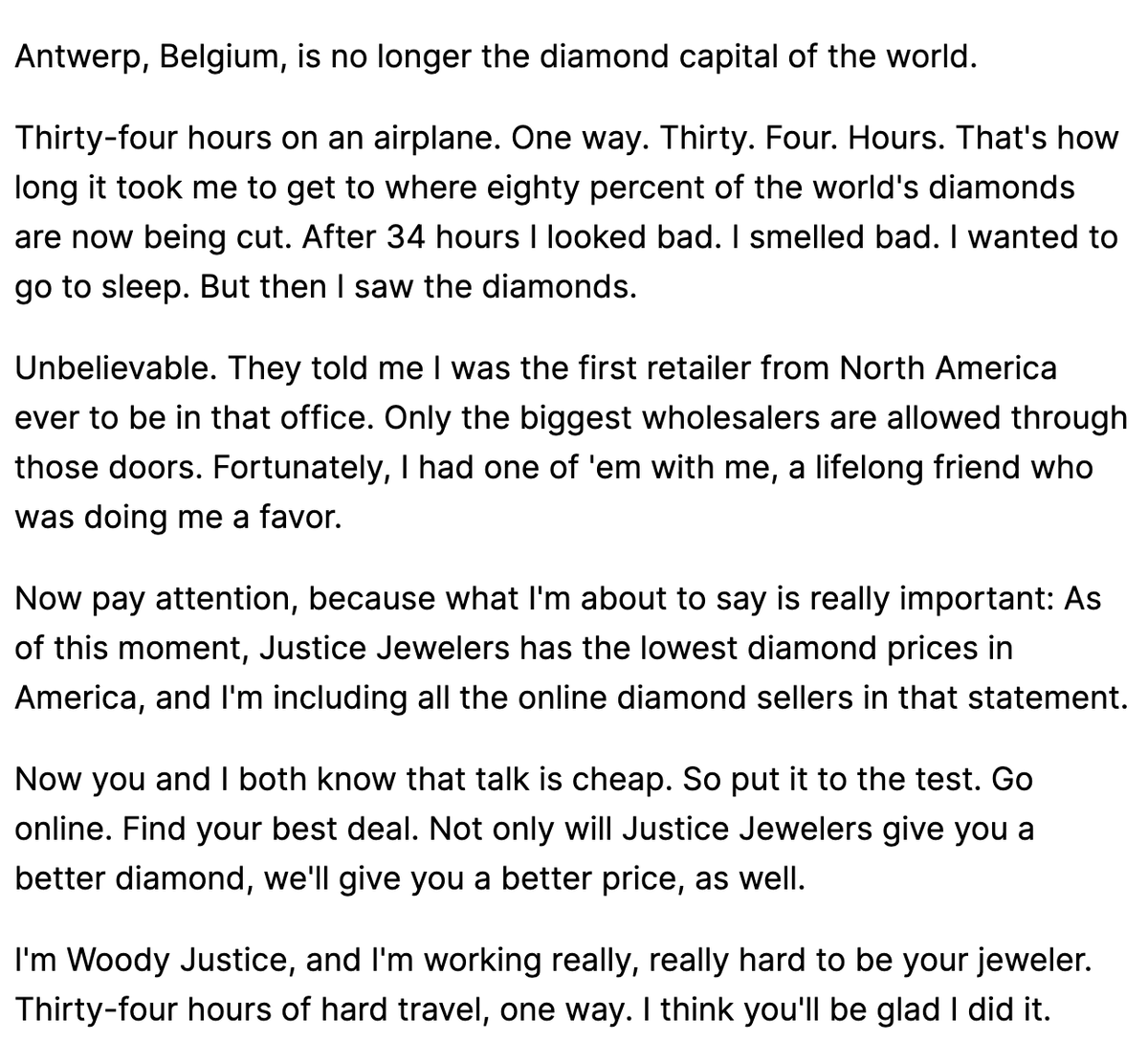
Tip from Blake: Write short, snappy sentences.
Reason: People have short attention spans. And big blocks of text are super hard to read. Make it
Example: Every blog from @Backlinko
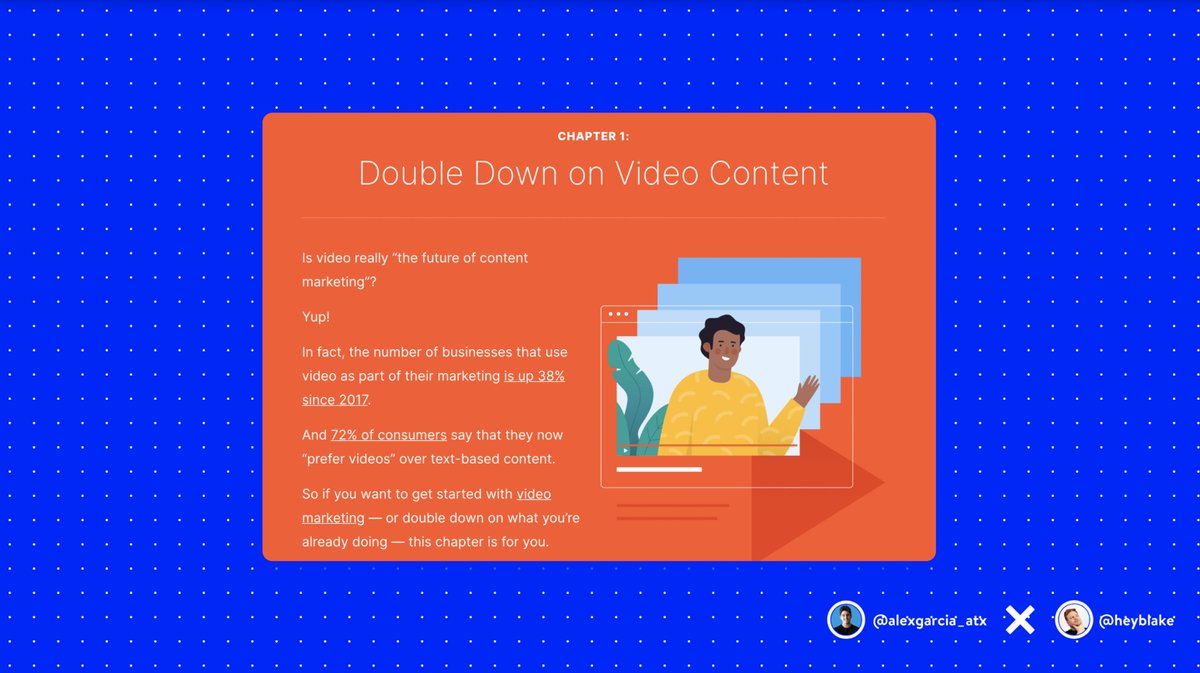
Use these 30 copywriting tips to convert readers into customers 🧵
Tip from Alex: Repeat Yourself
Reason: Your main benefit shouldn’t be expressed subtly. Repeat it three times. Make it known.
Example: Apple’s M1 Chip

Tip from Blake: Start with goals for the copy.
Reason: You need to know what you are writing, for whom, and what action it should lead to. No guesswork.
Example: My content engine at https://t.co/jYMMlbgFCw

Tip from Alex: Use Open Loops
Reason: Open loops peak a reader's interest by presenting an unsolved mystery to the reader. Our brains are hardwired to find closure. Make your product the final closure. Example: Woody Justice

Tip from Blake: Write short, snappy sentences.
Reason: People have short attention spans. And big blocks of text are super hard to read. Make it
Example: Every blog from @Backlinko

You May Also Like
1/ 👋 Excited to share what we’ve been building at https://t.co/GOQJ7LjQ2t + we are going to tweetstorm our progress every week!
Week 1 highlights: getting shortlisted for YC W2019🤞, acquiring a premium domain💰, meeting Substack's @hamishmckenzie and Stripe CEO @patrickc 🤩
2/ So what is Brew?
brew / bru : / to make (beer, coffee etc.) / verb: begin to develop 🌱
A place for you to enjoy premium content while supporting your favorite creators. Sort of like a ‘Consumer-facing Patreon’ cc @jackconte
(we’re still working on the pitch)
3/ So, why be so transparent? Two words: launch strategy.
jk 😅 a) I loooove doing something consistently for a long period of time b) limited downside and infinite upside (feedback, accountability, reach).
cc @altimor, @pmarca
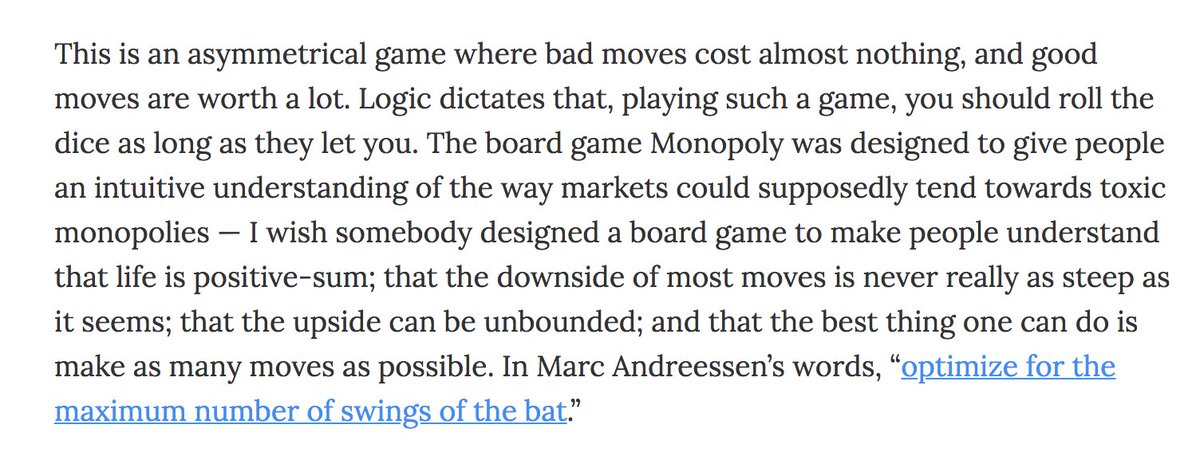
4/ https://t.co/GOQJ7LjQ2t domain 🍻
It started with a cold email. Guess what? He was using BuyMeACoffee on his blog, and was excited to hear about what we're building next. Within 2w, we signed the deal at @Escrowcom's SF office. You’re a pleasure to work with @MichaelCyger!
5/ @ycombinator's invite for the in-person interview arrived that evening. Quite a day!
Thanks @patio11 for the thoughtful feedback on our YC application, and @gabhubert for your directions on positioning the product — set the tone for our pitch!
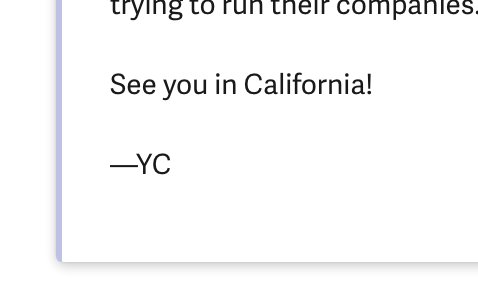
Week 1 highlights: getting shortlisted for YC W2019🤞, acquiring a premium domain💰, meeting Substack's @hamishmckenzie and Stripe CEO @patrickc 🤩
2/ So what is Brew?
brew / bru : / to make (beer, coffee etc.) / verb: begin to develop 🌱
A place for you to enjoy premium content while supporting your favorite creators. Sort of like a ‘Consumer-facing Patreon’ cc @jackconte
(we’re still working on the pitch)
3/ So, why be so transparent? Two words: launch strategy.
jk 😅 a) I loooove doing something consistently for a long period of time b) limited downside and infinite upside (feedback, accountability, reach).
cc @altimor, @pmarca

4/ https://t.co/GOQJ7LjQ2t domain 🍻
It started with a cold email. Guess what? He was using BuyMeACoffee on his blog, and was excited to hear about what we're building next. Within 2w, we signed the deal at @Escrowcom's SF office. You’re a pleasure to work with @MichaelCyger!
5/ @ycombinator's invite for the in-person interview arrived that evening. Quite a day!
Thanks @patio11 for the thoughtful feedback on our YC application, and @gabhubert for your directions on positioning the product — set the tone for our pitch!

I just finished Eric Adler's The Battle of the Classics, and wanted to say something about Joel Christiansen's review linked below. I am not sure what motivates the review (I speculate a bit below), but it gives a very misleading impression of the book. 1/x
The meat of the criticism is that the history Adler gives is insufficiently critical. Adler describes a few figures who had a great influence on how the modern US university was formed. It's certainly critical: it focuses on the social Darwinism of these figures. 2/x
Other insinuations and suggestions in the review seem wildly off the mark, distorted, or inappropriate-- for example, that the book is clickbaity (it is scholarly) or conservative (hardly) or connected to the events at the Capitol (give me a break). 3/x
The core question: in what sense is classics inherently racist? Classics is old. On Adler's account, it begins in ancient Rome and is revived in the Renaissance. Slavery (Christiansen's primary concern) is also very old. Let's say classics is an education for slaveowners. 4/x
It's worth remembering that literacy itself is elite throughout most of this history. Literacy is, then, also the education of slaveowners. We can honor oral and musical traditions without denying that literacy is, generally, good. 5/x
As someone\u2019s who\u2019s read the book, this review strikes me as tremendously unfair. It mostly faults Adler for not writing the book the reviewer wishes he had! https://t.co/pqpt5Ziivj
— Teresa M. Bejan (@tmbejan) January 12, 2021
The meat of the criticism is that the history Adler gives is insufficiently critical. Adler describes a few figures who had a great influence on how the modern US university was formed. It's certainly critical: it focuses on the social Darwinism of these figures. 2/x
Other insinuations and suggestions in the review seem wildly off the mark, distorted, or inappropriate-- for example, that the book is clickbaity (it is scholarly) or conservative (hardly) or connected to the events at the Capitol (give me a break). 3/x
The core question: in what sense is classics inherently racist? Classics is old. On Adler's account, it begins in ancient Rome and is revived in the Renaissance. Slavery (Christiansen's primary concern) is also very old. Let's say classics is an education for slaveowners. 4/x
It's worth remembering that literacy itself is elite throughout most of this history. Literacy is, then, also the education of slaveowners. We can honor oral and musical traditions without denying that literacy is, generally, good. 5/x



